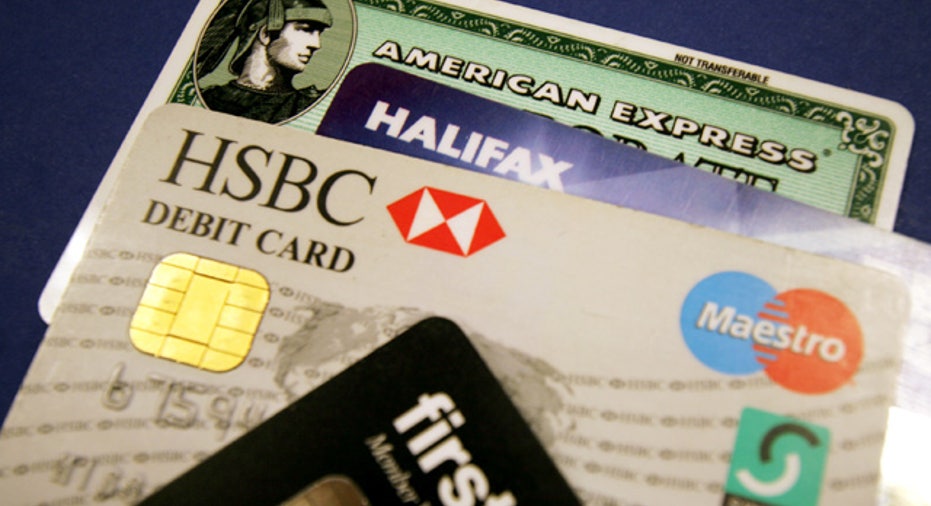Found a Lost Credit Card? 4 Safe Ways to be a Good Samaritan

If you find someone's credit card in a store or on a sidewalk, your first thought is probably to do the right thing by making sure it doesn't get into the wrong hands. But there is some risk involved in being a Good Samaritan, depending on the option you choose.
The biggest risk is in deciding whether to track down the owner. You could ask around in the area where you found the card, but there's always the chance the wrong person will claim it. You might find someone with the same name in an Internet search or on Facebook, but if that person is not the owner of the card, you're opening yourself up to a connection you don't want. And even if it is the right person, you can't predict how he or she will react. The owner may question your involvement or motives.
Another possible risk lies in possessing a credit card that isn't yours. For this to be a legal problem for you in most states, a prosecutor would have to prove that you knew or should have known the card you have was stolen and that you had the intent of using it or selling it. But in Florida, a state plagued with high credit card fraud, the legislature in May 2011 lowered the bar for prosecutors and approved a bill that would remove the need to prove intent to use or sell such a card. It is awaiting Gov. Rick Scott's signature.
The Florida legislation also increases the penalty for possessing a knowingly stolen credit card from a misdemeanor to a third-degree felony.
Given the conceivable problems of either tracking down the owner or hanging onto the card, there are better options:
1. Destroy the card: That way, you remain anonymous. The owner will likely report the card missing and will get a new one, but no one will be able to use the lost card in the meantime. Don't just toss it in the garbage, however. Shredding is good, but you have to make sure that you have a shredder that can handle cutting up a credit card. Even after shredding, put the pieces in separate garbage bins, just to be safe. If you're cutting it up with scissors, make sure you cut through the numbers, signature and magnetic stripe and, again, put the pieces in separate trash cans. Dumpster divers can piece numbers together. Remember, thieves don't need the whole credit card, just the numbers.
2. Give it to a cashier: This works best in a place that has a customer service desk -- a department store, for example. "In the retail environment, all the clerks and managers are trained to send cards back to the cashier's office -- the central lost and found," says Los Angeles-based security expert and author Chris McGoey. The likelihood is that the person is still in the store or has just returned home. "Wouldn't it be nice if you could just go back to the store and pick up your card?"
3. Call the number on the back of the card: If you can't find a responsible merchant around immediately, call the number on the back of the card. Instead of entering the card number, press 0 to get an operator or customer service person. They will likely thank you and tell you to destroy the card. "That way, the credit card company will document the call, and they will be able to verify there was no unlawful use of the card by the time you called," McGoey says.
4. Contact police: Denise Richardson, consumer advocate and ID theft expert in South Florida and author of "Give Me Back My Credit!" says this is the option she would recommend. By calling police, you've done your part, she says. And if they tell you to contact the card company, you're on record as having contacted the police.
Richardson says the Florida bill is meant to go after fraudulent use, but she's afraid people will stop picking up credit cards because of the ambiguity of the bill. The bill specifically excludes retailers and retail employees who may be in possession of others' cards, she notes, but it doesn't exclude an average person who happens upon a card. But doing nothing when you see a card won't solve the problem, she says.
"If you just step over it and say, 'That's not my problem,' then that's not going to do anything to reduce the risk [of fraudulent use]. Then people with bad intentions will pick it up."
Al Marcella, an expert on information security and a professor at Webster University's business school in St. Louis, says it's still OK to be the good guy. He says the risk of prosecution from you picking up the card is negligible -- as long as you act ethically and within a reasonable amount of time.
Most people would be glad if someone made a call that resulted in canceling the credit card, he says.
"It would obviously be a kicker if you're traveling somewhere and your card is deactivated," Marcella says. "Still, I'd rather have that happen than to have someone who may not be acting ethically engage in some unauthorized transaction on the card."
More from CreditCards.com:



















